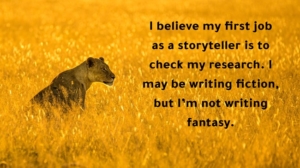Best Advice: Do You Know or Do You Think You Know?
By: Donnell Ann Bell
Years ago, I belonged to an online mystery critique group in which I met my good friends Annette Dashofy, Rosemarie Szotak, as well as various critique partners in  Australia, Canada, and beyond. There was one individual in our group who was a terrific writer and well versed in geography and military affairs. His protagonist was a military officer, and he and his sidekick went everywhere to complete their missions. In fact, his first working title was, “To the Ends of the Earth.”
Australia, Canada, and beyond. There was one individual in our group who was a terrific writer and well versed in geography and military affairs. His protagonist was a military officer, and he and his sidekick went everywhere to complete their missions. In fact, his first working title was, “To the Ends of the Earth.”
 I confess I’m not a world traveler. The most international travel I’ve done has been as far as Canada and Mexico. So, I was rather intimidated when he wrote about places like East Timor, Somalia, and Egypt.
I confess I’m not a world traveler. The most international travel I’ve done has been as far as Canada and Mexico. So, I was rather intimidated when he wrote about places like East Timor, Somalia, and Egypt.
The reason I mention my writing colleague is he often challenged me when reading my work by saying, “Is this true?” “Do you know, or do you think you know?”
That always gave me pause and made an impression. Perhaps that’s why when I research, I double check and often triple check facts from alternate sources to get my story as correct as humanly possible.
Which sadly can be a challenge. I don’t think it’s any secret that the world is a v-e-r-y opinionated place. Thanks to social media, twenty-four-hour news cycles, and provocative information designed as clickbait, it’s so easy to read a headline (that often has little to do with the article), peruse said article, and believe we’re coming away with the truth.
I watch The Good Fight (admitted fictional entertainment), and on a couple of episodes it showed how easy it was to post videos on the internet that appeared well-documented and authentic. It’s astounding how much data comes at us daily. Time is money, sensationalism sells, and media outlets have more competition than ever—professionals and amateurs alike—are writing, filming, and posting. Breaking news attracts viewers and boosts algorithms. Readers copy links. Others forward to their friends and family, and so on, and so on . . . .
that appeared well-documented and authentic. It’s astounding how much data comes at us daily. Time is money, sensationalism sells, and media outlets have more competition than ever—professionals and amateurs alike—are writing, filming, and posting. Breaking news attracts viewers and boosts algorithms. Readers copy links. Others forward to their friends and family, and so on, and so on . . . .
I believe my first job as a storyteller is to check my research. I may be writing fiction, but I’m not writing fantasy. What I publish should believable fiction. Often, if I’m unsure, I’ll abandon articles and seek out experts.
 Back to that long-ago critique partner, when emailing our chapters back and forth, I admitted how little I knew about world geography. He responded with, “Go get your globe.” I did, then via email, he said, “Now using your finger, follow my lead.” That method was better than any geography class I could have taken. To this day, when reading international articles where I’m unsure of the location, I enlist my globe.
Back to that long-ago critique partner, when emailing our chapters back and forth, I admitted how little I knew about world geography. He responded with, “Go get your globe.” I did, then via email, he said, “Now using your finger, follow my lead.” That method was better than any geography class I could have taken. To this day, when reading international articles where I’m unsure of the location, I enlist my globe.
My critique partner’s advice, “Do you know? Or do you think you know? influences my writing to this day. Have you received a piece of advice that has stayed with you for years?
About the Author: Donnell Ann Bell is an award-winning author, her latest work, a series, includes Until Dead: a Cold Case Suspense, released in 2022, Black Pearl, a Cold Case Suspense 2020 Colorado Book Award finalist. Donnell’s single title books include, Buried Agendas, Betrayed, Deadly Recall and the Past Came Hunting, all of which have been Amazon bestsellers. Currently she’s writing book three of her cold case series. www.donnellannbell.com



Great post, Donnell. As someone who also double-checks research, I appreciated your thoughts on the topic.
Thanks, Kathryn. I’ve received so much good advice (some terrible advice, I might add), but two pieces I love are the one I referenced here and Find your Own Voice! I take that one to the bank also. Happy Monday!
What a great critique partner to give you such sage advice. I’ve learned so much from critique groups, also. The first memorable lesson was on the impact of point of view. I knew all about it as a reader and a teacher of literature, but point of view is perhaps the most powerful tool a writer has.
Hi, Saralyn, oh, yes, point of view is SUCH a powerful tool. One thing I always ask myself is who’s scene is it and who would be the most powerful Point of View character for a scene. Obviously, i think this has happened to you… you’re going along and having a bleh moment, then switching POVs fixes everything 🙂
Great post, Donnell! The best writing advice I ever received was that every scene must do one of either two things–advance the plot or tell the reader something she needs to know AT THAT MOMENT about the POV character.
A second excellent piece of advice I received was that when choosing the POV character for the scene, it should always be the character with the most to lose at that moment. (Of course, I now write in first person, so my POV character never changes!) 😉
I agree but question AT THAT MOMENT. Sometimes i think there can be foreshadowing. Because a mystery is a puzzle as much as it is a story, those little threads are critical in my opinion. Thanks for sharing your best advice, Lois!
What great advice… and it always will hold true no matter what one is writing. Thanks for sharing and emphasizing the point today.
Debra, absolutely. I find Do I Know or Do I Think I know helpful in all facets of life, not just writing. Thank you for expanding!
I love what your critique partner did for you! It’s a message we all need to take to heart. Even though I write fiction, I think it’s important to get details right. Thanks for your blogs!
Patricia, thank you. People come in and out of lives. He certainly made a lasting impression and made me focus on the quality of my writing. I feel blessed to have had many fine critique partners past and present. Thanks for stopping by!
Thanks for this important reminder, Donnell – and a reminder of my own:) As a person who lives and works in the disability community, I want to urge writers to research any disabilities included in their stories by talking to people who live with those disabilities. It’s too easy to imagine what it might be like to be blind or use a wheelchair, but the realities are often quite different (and make for fascinating details in your books). I wrote an article about this for Sisters in Crime in 2020 called,”How Not To Play House, or Do Your Disability Research. Please,” and would be happy to point people in the direction of any research needed.
Cindy, what an important point you bring up. How can anyone write about a disabled person, whether it be from their point of view as an antagonist/protagonist, or just about them as a secondary character. Interestingly, I have been watching Louise Penny’s Three Pine series on Prime. There is a character who has low vision and as a result her other senses, particularly her hearing, excel. Do you know or do you think you know especially applies when writing someone disabled, someone from another culture, etc. etc.
Donnell,
Rarely does one read about the tremendous value a single member of a critique group can be. I love the question he posed: do you know, or do you think you know? Wow! Just reading those words gives me the chills. Just last night I spent hours struggling with how to get the information I need for Book III (only notes so far) in a trilogy with Book I almost complete.
Your story is an amazing reminder of the need for research, especially in fiction.
Thank you, George! I’m about to start Robbers and Cops. I know you do your research, The beauty of drafts (and fiction) is there is time to weave a complete pattern! Thank you for stopping by!
Great post. Love that exercise with the globe! Thanks for the reminder to write the truth. In a memoir writing class I wrote a story about a big yellow mixing bowl, just like the one I grew up with. I closed my story with a line calling it ‘my mom’s bowl after all.’ I thought I was being poetic. (!) I’ll never forget the instructor saying, “But that’s not true. It wasn’t her bowl.” It wasn’t. I simply had not written the truth. Amazing how those lessons stay with us.
Ah, Barb, poetic license can be a bear 😉 How would you write that ending today, I wonder. Thanks for sharing. Yes, I think the globe is a magnificent way to discover, especially when listening to a podcast or just following a news article. Thanks for stopping by.
Your post is a good reminder, Donnell. A good critique partner is so valuable! Years ago, one of mine had an aversion to the use of “said” when tagging dialogue. We all called him the Saidkiller. But his comments helped imporove my dialogue-writing skills. I still have him in mind as I write today.
Ah, Said Killer, I love it. Here’s my thinking such that it is. Early on in my writing career, more experience authors said, “Said is invisible.” But too much of anything has the potential to yank a reader out of the story. I’ve read books that authors try to use ANY word but said, e.g. claimed, mused, chattered, etc. And that is highly noticeable and makes the reader remember they’re reading.
However, back to the word said, and tags. At a Left Coast Writer Panel in Monterey, I listened to an agent warn to limit tags period, especially if your books are in audio. If you listen to them, and the actor reading, he/she must change her voice every time, he said, he asked, etc. comes up. Does that mean I never use said? No. There are times you have to use it. However, I use more beats than I do tags these days. For instance: From my latest novel, Until Dead, “Welcome home, Ms. Franich. Hope you enjoyed Germany. Interesting word, ransacked.” Pope held out a hand. “Wonder if we might discuss this in my office.”
Good post, Donnell. I agree that writers should make an effort to get it right. That said, poetic license does have its place in fiction writing. If things are too realistic, the story can become bogged down. I think that sometimes you have to do a balancing act. On the other hand, nothing turns me off more than reading a book where the author didn’t at least make an effort to do his research or has a plot development that is ridiculous. I recall one novel where the protagonist was fooled when someone substituted a water pistol for his real gun. I threw the book against the wall and vowed never to read the author again.
Mike, such a valid point! Which is a reminder to do a post about…. ta ta da!! “Your research is showing.” Gosh, I’d love to discuss the water pistol with you. I read a book once when the protagonists are running for their lives, the bad guys are on their doorstep, and they stop to make love in the shower. That kind of was a deal breaker for me 🙂 I would love for you to do a blog on examples of Poetic License. I’ll message you in case you don’t get back to read this. Thanks for your invaluable input.
Hi Donnell! Not only did your post hit the mark, but many of the comments offer excellent advice. What a talented group. I love, love, love researching, and just know everyone else must too. Ha! I bought beautiful globes for a young granddaughter and two great-granddaughters for Christmas. Fingers crossed they don’t groan and say, “That’s so grammy.” Yep, always have education on my mind. I totally agree with you about tags and beats. Tags serve one purpose, to tell the reader who is talking. Beats remind the reader about the environment, mood, or give character development. I want to use what gives the most energy possible to the story, but always–always a balance to not overuse. Thanks for the fun.
Oh my gosh, I love the idea of giving small globes to children. What better way to whet their appetite for recognizing the world’s a big place. And great point about beats and tags. Balance! Yes!!! Thanks for dropping by, Char!
Great advice, Donnell. And I love my critique group. I’ve learned so much working with them.
A good critique group (which is a subject all on its own) is worth its weight in gold!!!
Donnell,
Just last week, I grabbed a globe to show my students how far away something was! Even if you travel, you don’t have a good sense of where you are in relation to where you’ve come from (other than time in a plane). A finger on a globe provides that sensory input. Best writing advice …hmm… “Show, don’t tell.” It took me many years to understand that and to realize it wasn’t an absolute but a tool to use when possible and appropriate.